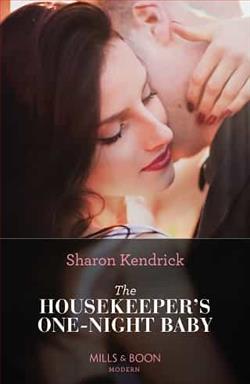Page 12 of Steam
He’d been exhausted and wound up at the same time, and the nocturnes that his neighbor was working his way through that night were exactly what he needed in order to leave the courthouse behind for the evening.
Barrett hadn’t showered yet for the day, and as much as it pained him to do so, he gave up on listening to the sweet music drifting down, moving through the condo to throw his clothes in the washer and start a shower.
He figured that the sound of rushing water would drown out the strains of Chopin.
He’d been wrong.
The pounding water combined with the flow of the notes, the warmth of the water mingling with the pleasant buzz he’d managed, and before Barrett had time to stop and think in depth about what he was doing, he was stroking himself with a soapy hand, imagining the hands one story above him were playing over his skin instead of a cold keyboard.
Barrett pictured his soloist, giving him all of the attributes that he liked the best. He would have dark, long hair and smooth skin, hips that fit just right up against Barrett’s. Best of all would be those hands, strong with long, elegant fingers, supported by wrists that were deceptively delicate and forearms roped with muscle.
Above, his neighbor began Op. 27, No. 2 in D flat major, and beneath him Barrett was wrapped in the fantasy of kissing full, dark lips. Barrett would murmur to him, thanking the man for all of the evenings of solace he’d given to Barrett. In a clear, deep voice, he would tell Barrett that music wasn’t all he had to offer when it came to those long, lonely nights.
Above, Barrett’s neighbor spiraled up an arpeggio. Beneath him, Barrett wished he had a name to mutter as he hipped forward into his fist, bracing himself against the wall.
The music elevated the rushed moment from the simple pursuit of relief to something almost profound.
Barrett could finish himself right then as he imagined the man stroking into him, but he knew the piece would swell in a few measures, and some absurd part of him insisted that he follow the music, that he should come during the crescendo that he knew would finish off the piece.
He stilled, letting the hot water pulse over his muscles, the steam fill his lungs, throbbing with need into his own hand until finally he heard the music pick up and he twisted down his length, hipping forward, giving into it, letting the release crash over him and surround him just like the strains of music from the condo above. Pleasure unfurled into his muscles and his legs went weak as he came, steadying himself against the tile wall and panting.
As he stopped the water and toweled off, Barrett realized something with a shock: it had been as good as any of the sex he’d ever had.
He knew he should feel guilty about what he’d done—or at least a little weird.
But he couldn’t bring himself to feel anything other than a pleasant afterglow.
* * *
If Josh hadto look at another rendering of Richard Wagner, he was going to be ill. He was the last composer that Josh had chosen for one of his portraits, but no matter how many times he sketched and began painting the man, he couldn’t seem to capture the feeling of Wagner’s music in his portrait.
He hated Renoir’s bloated portrait of Wagner. Franz van Lenbach’s oil on canvas was no good either. Karl Wilhelm Diefenbach had gotten closer, with his aloof-looking Wagner who gazed away from the viewer, off at some distant point but… No, Diefenbach’s Wagner wasn’t quite right, either.
Why had Josh assumed that a pitiful artist like himself could do better than the greats of the past?
With all of the composers before Wagner, Josh had been able to work through his art blocks during his nightly piano practice. There was something about leaving the studio—with its paintbrushes and sketches and echoing acoustics—behind him and sitting down at the keyboard that made his mind work differently. Despite it being his main pursuit and source of income, Josh rarely felt the same sort of creative flow when he held a paintbrush as he did when he sat on the piano bench.
The muscle memory was different, after all, and in order to actually play the notes on the sheet music in front of him, he needed the utmost concentration. Playing stripped away the stresses of daily life and allowed him to tap into that most creative part of himself.
It was as effective as sketching in terms of planning his paintings, and more effective when it came to working through a block.
But even with the rigorous hour-a-day practice schedule he kept, he could not find a way to portray Richard Wagner to his liking.
Josh felt himself getting mad that morning, had to tamp down the growing urge to pull the wooden panel off his easel and stomp it into the concrete ground. (If he did that, he realized, he’d have to order yet another one, and then he’d have to wait outside to receive it. More wasted time, more opportunities for his asshole neighbor to look him up and down like a ne’er-do-well. No thanks.)
He admitted to himself that he’d hit a wall. Maybe he needed to expand the normal practice hour.
* * *
Barrett had wrangleda rare Saturday off. Well, perhaps off wasn’t the word for it. He’d taken plenty of work home with him to tackle over the weekend—but at least no one expected him in the office that day. And that was a victory. He could enjoy a cup of coffee while he watched the street out front come alive for the day.
He appreciated the fact that he didn’t have to put on a suit and his uncomfortable dress shoes stayed in the closet. He hardly even understood what it was to dress casually anymore, as it was rare to wear anything other than a suit or whatever he was going to sleep in—but he managed to locate some old sweatpants in the back of his closet and a Jacksonville Warriors t-shirt that he’d forgotten about, bleached out and worn soft with age.
He had the whole day ahead of him, and then tomorrow he’d be headed to Georgia to pick up Princess.
All in all, the weekend was shaping up to be pretty fabulous.
And it only got better when, out of the blue, the piano bench scraped across the floor upstairs and his neighbor began playing.















